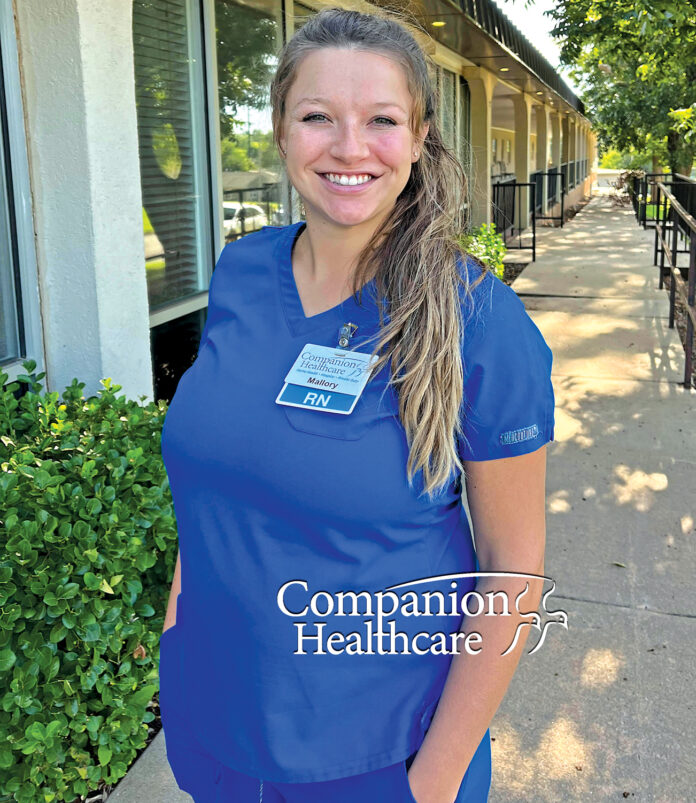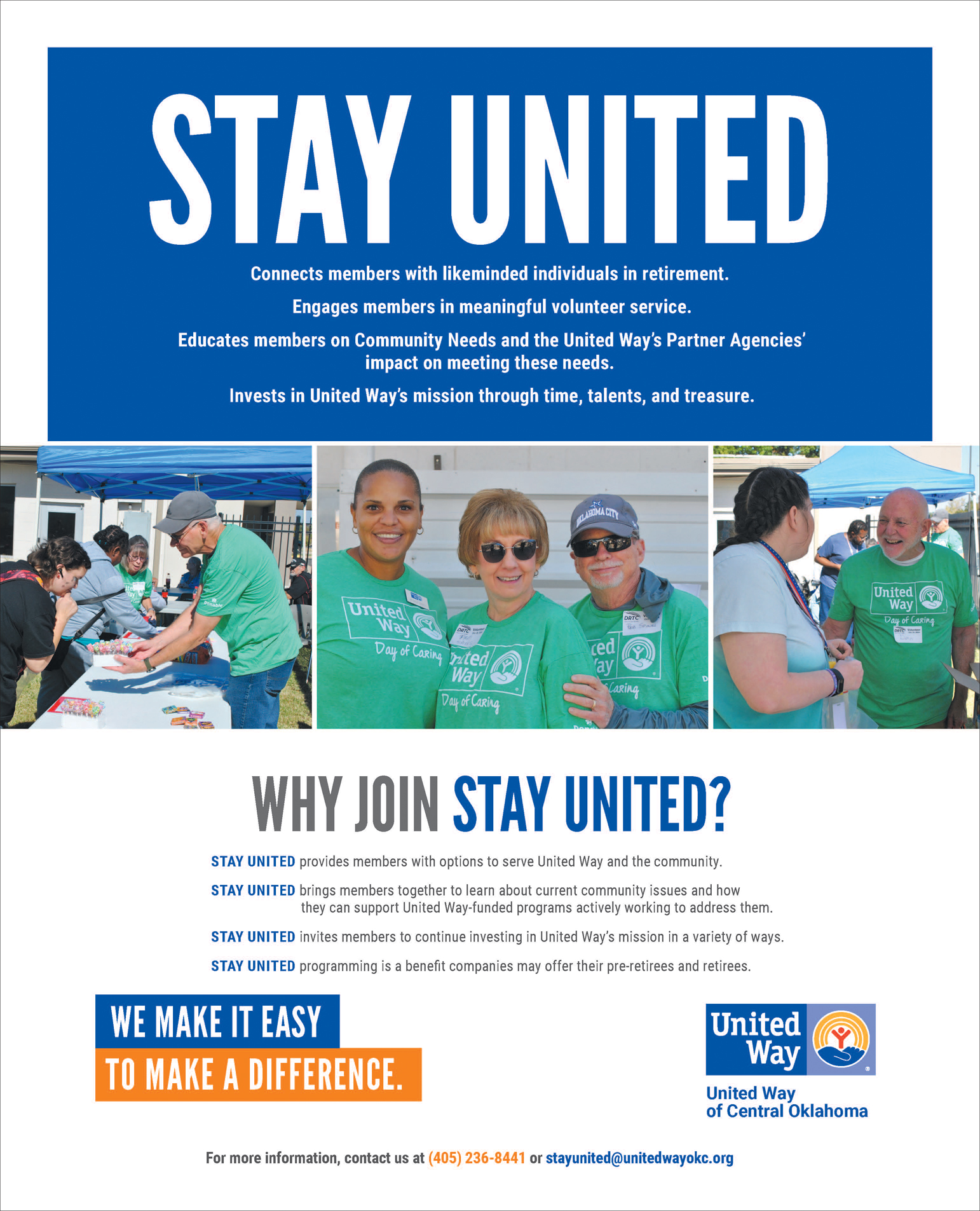
story and photo by
James Coburn, Staff Writer
Mallory Mains, a registered nurse serving Companion Hospice entered a new realm of hospice nursing three months ago. She brought with her hospital skills she learned while working in an emergency room, and outpatient neurology.
Additionally, she is also an adjunct at The University of Central Oklahoma. She graduated from UCO with a Bachelor of Science in Nursing degree.
She tells them about being a hospice nurse and how nursing is a diverse profession full of opportunities.
“When I was in the emergency room it was the complete opposite of this coin. So, it’s nice to see people with good lives pass in a way that they choose,” Means said. “Encouraging that philosophy in the lives of patients we take care of makes your job easy.”
Mains’ choice of hospice came when she needed a break, she said. It wasn’t necessarily hospice that drew her in. It was the company of Companion.
“I needed to work for someone who values nursing. And this company is one of a few that does that,” Mains said. “Hospice is a bonus because I get to help people during their end of life, keep them comfortable and fulfill their last wishes.”
Mains sees 8-15 patients twice a week or daily, depending on her case load and her patients’ stages in life. Her goal is making sure they’re comfortable and their pain is under control. Services for hospice patients usually last an average of six months or less. But individual endurance may be surprising.
Working amid a nursing staff of team players makes best practices run like a well-oiled machine with a large dosage of compassion and empathy. Hospice is all about palliative care, and there is a benefit in the circle of care with physicians, social workers, chaplains, nurses and certified aides, therapists, as well as volunteers who are there to assist families and patients through their entire journey. The nursing staff shares ideas.
“They’re willing to help each other out. If I’m caught up with a patient and have another emergency, I can basically text anyone and say, ‘Can you go check on them?’” Mains said.
Patients and families come to hospice with many questions. Patience is essential in hospice care. Hospice nurses need to be willing to answer the same questions repeatedly. Patients may be scared, and forgetful family members might have stress overload.
“On that first encounter we paint a picture of what hospice looks like. It’s kind of scary to some people. We make sure we give them the information they need and then encourage them to make their own decisions, never force our services on them. And then follow up the next day to make sure all their needs are answered,” she said.
There is a lot of mutual agreement about a care plan. Families are encouraged to ask questions at any time. The timeline of decline for every patient is different. Education helps families to recognize the normal shifts of decline a loved one experiences before passing. She inevitably follows with how Companion Hospice is meeting this vulnerable time of life.
“We have some really good resources here that staff has put together. There are a lot of booklets and pamphlets that we give to the family and the patients,” she said.
Mains has developed a keen ability to read each patient. Sometimes they feel like opening up to her and get to know her. Other times, they are not as personal. But the hospice nurses continue to treat each patient the same without changing how they provide care, Mains said.
“It’s nice to get to know your patients because then you feel like you have a friend,” Mains explained.
Being a hospice nurse comes with experiences that inspire Mains to move forward in facing challenges ahead.
“Our patients really are fabulous. I don’t know if it’s because of the way we treat them. They treat us well. It is easy to help someone who wants your help,” she continued.
Means has found during her three months at Companion Hospice that hospice care is often a subsequent nursing job that college graduates pursue. She doesn’t recall any of her UCO classmates choosing hospice as their first career option.
Hospices nationwide may see a mass exodus of registered nurses in coming years, particularly younger, newer, and less experienced nurses living with pandemic-related burnout, according to a 2023 analysis by the National Council of State Boards of Nursing. Nearly 900,000 of the nation’s 4.5 million registered nurses expect to leave the health care workforce by 2027, according to the NCSBN research.
However, being a nurse has only deepened Means’ outlook on life. “Society is changing in ways I had never prepared for,” she said.
“And so being a nurse has required me to be quick to change, and adapt to whatever situation I’m put in,” she said.
Meanwhile, she reduces stress by exercising at a gym. She and her husband spend time at a lake during summertime.
“I do a lot of reading,” she added.













